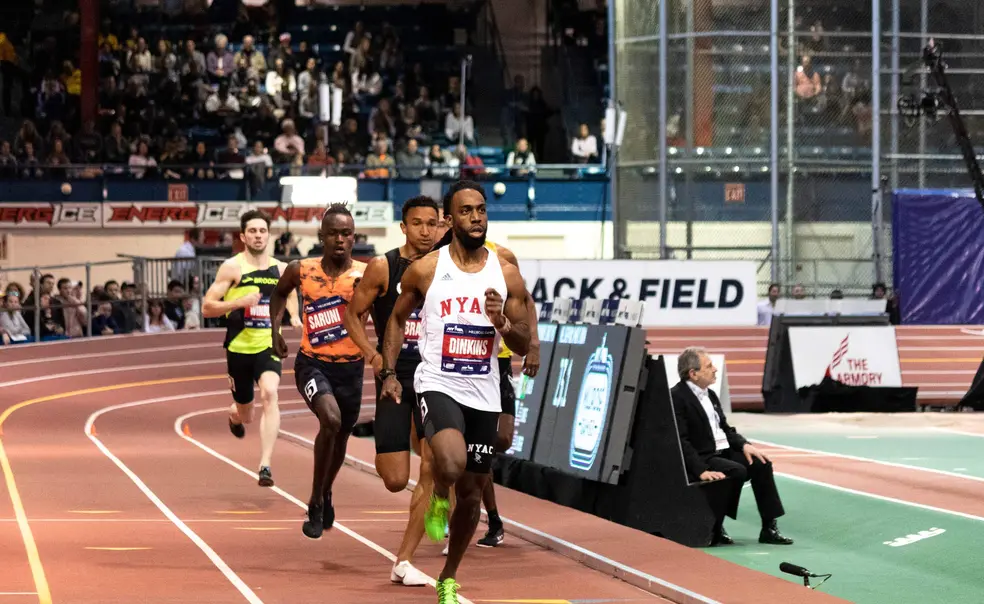Russell Dinkins ’13 Helps Keep Varsity Track at Brown University
“Brown is cutting one of its few truly diverse sports,” Dinkins wrote in a viral blog post
Russell Dinkins ’13 knows the impact track can have on a Black student’s life. Running track opened the door to opportunities that shaped and changed his path — from attending Princeton where he studied sociology to a shot at running in the 2021 Olympics.
That’s why Dinkins, who works in education and student enrichment, was upset when he first heard in May that Brown University was downgrading men’s track and field and some of its other varsity teams to club status. A few days later, following the tragic death of George Floyd, Brown released a statement denouncing racial injustice and committing to equality. Dinkins was furious.
“The hypocrisy of it was glaring,” Dinkins says. He decided to do something about it.
Throughout the pandemic, Dinkins had been blogging on Medium to get his thoughts down — often writing about race. On June 2 he posted a blog entry titled, “Brown University, If You Were Actually Serious About Racial Justice You Would Not be Cutting the Men’s Track Team.” Dinkins detailed the harm behind the university’s decision, noting that track is one of the most accessible sports and is one pathway for underrepresented students to gain admission.
“Brown is cutting one of its few truly diverse sports while still keeping many of its affluent sports on the table,” Dinkins wrote. “Brown’s track team has more Black males than their Lacrosse, Baseball, Ice Hockey, and Crew teams combined.” According to the NCAA Demographics Database, 21% of college athletes are Black compared with just 9% in the Ivy League.
Dinkins is friends with some Brown alumni who were organizing to get the school to reconsider the decision. He figured the Medium post could be used to support the group and get media coverage, as his argument included specific data to back up the point. He didn’t realize how much the piece would resonate.
“I started noticing the viewership of the piece started going up about 1000 every two hours,” Dinkins says. Once he shared it on social media, he began getting calls from colleagues in his athletics circles who told him the piece was catching on and being talked about. Since the end of June, more than 30,000 people have viewed it.
The piece was just one small part of a larger push organized by alumni and current athletes to pressure Brown. The collective effort worked. Brown President Christina H. Paxson announced June 10 that men’s track and field and men’s cross country would be reinstated. The original decision was made to comply with a Title IX settlement, she wrote, but now, fully understanding the consequences for Black students and alumni, Brown will remain in compliance with other modifications.
Although Dinkins was surprised by the speed and relieved by the decision, the larger fight doesn’t end here, he says. This is just one example of the many instances of systematic and institutional racism that impact the decision-making at many universities. Universities need to take actionable steps beyond statements, Dinkins said.
“What’s really important is that all universities, particularly the Ivy Leagues, including Princeton, look at what ways are [they] committed to these issues and what impact have they had,” he says.












No responses yet